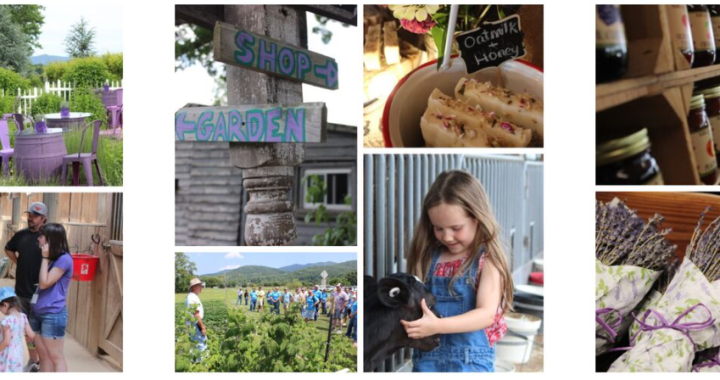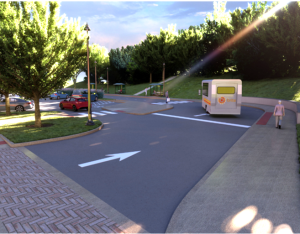
The Lewis Street Transit Hub rehabilitation project is well underway. Looking at the hub today it might appear that nothing is happening – but in the background the CSPDC project team has been working hard to bring this project to life.
The team completed the engineering phase of the project at the end of 2023, and CSPDC issued an Invitation to Bid in late January. While awaiting bids from prospective contractors, CSPDC staff worked with the City of Staunton to identify a location for BRITE buses to temporarily hub while the Lewis Street lot is unavailable during construction. Finding a location that is accessible to passengers who use a wheelchair or mobility device and that allows all passengers to board and alight safely was critical.
In early March, CSPDC staff hosted a live bid opening. In the coming weeks, the project team will ensure the bids submitted are complete and competitive and hope to announce the award of a contract by the end of March.
Construction is expected to begin in April and should last approximately four months. When complete, the renovated transit hub will be a tremendous asset to the BRITE Bus system and Downtown Staunton.

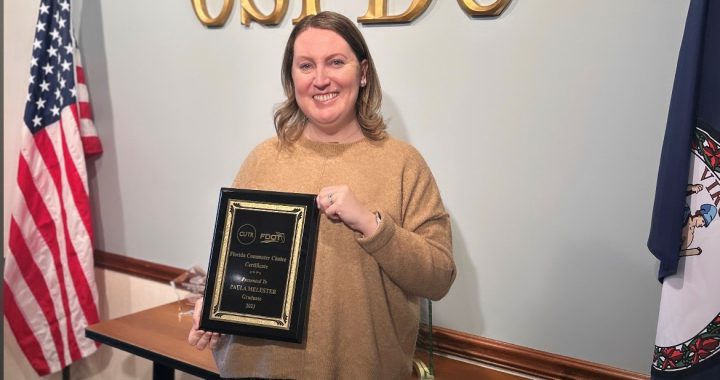
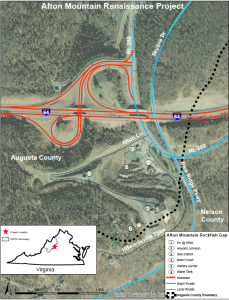 Augusta County will receive $50,000 in Virginia Brownfields Assistance Funds (VBAF) through the Virginia Economic Development Partnership for the Afton Mountain Renaissance project. These funds will allow the County to complete a water and wastewater assessment of the property located at the intersection of U.S. Route 250 and I-64 atop Afton Mountain. Augusta County is working with Timmons Group to complete several tasks to assess existing conditions on the property with the goal of creating a master visioning plan for future development on the site. Through this task, Timmons will conduct a full condition assessment of the existing water and wastewater systems on the site, provide recommendations, and draft a preliminary engineering report for specific water and wastewater needs to support future business development.
Augusta County will receive $50,000 in Virginia Brownfields Assistance Funds (VBAF) through the Virginia Economic Development Partnership for the Afton Mountain Renaissance project. These funds will allow the County to complete a water and wastewater assessment of the property located at the intersection of U.S. Route 250 and I-64 atop Afton Mountain. Augusta County is working with Timmons Group to complete several tasks to assess existing conditions on the property with the goal of creating a master visioning plan for future development on the site. Through this task, Timmons will conduct a full condition assessment of the existing water and wastewater systems on the site, provide recommendations, and draft a preliminary engineering report for specific water and wastewater needs to support future business development.
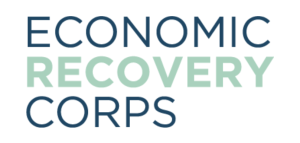 Highland County was one of 65 communities in the country selected as a host community for an Economic Recovery Corps (ERC) Fellowship. Led by the International Economic Development Council, the ERC program builds capacity in economically distressed areas across the U.S by placing a dedicated fellow — fully funded for two and a half years — in local communities to support and strengthen ongoing economic development efforts.
Highland County was one of 65 communities in the country selected as a host community for an Economic Recovery Corps (ERC) Fellowship. Led by the International Economic Development Council, the ERC program builds capacity in economically distressed areas across the U.S by placing a dedicated fellow — fully funded for two and a half years — in local communities to support and strengthen ongoing economic development efforts.